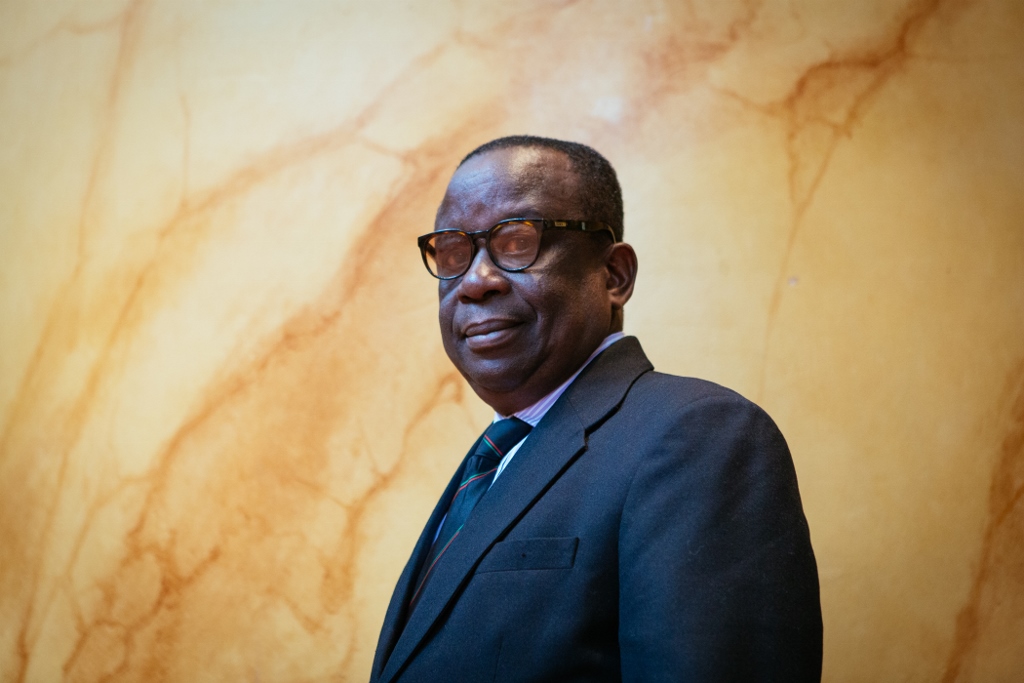Want to fight extreme poverty? Provide more, timely data
 A portrait of Albert Kan-Daapah of Ghana. Mr. Kan-Daapah is a former MP, Minister, and public accountant who is now fighting for fiscal transparency in Ghana as a civil society leader. Photo: Keith Lane/Oxfam America
A portrait of Albert Kan-Daapah of Ghana. Mr. Kan-Daapah is a former MP, Minister, and public accountant who is now fighting for fiscal transparency in Ghana as a civil society leader. Photo: Keith Lane/Oxfam America
Aid policies and programs should empower citizens and civil society to have access to information as well as the space to operate, track and verify development spending from all sources.
Albert Kan-Dapaah is a former Parliamentarian and Cabinet Minister in Ghana. He left public service to join the civil society community in Ghana by co-founding Financial Accountability & Transparency-Africa, where he is now Executive Director.
There certainly have been great strides in the fight against extreme poverty in the developing world. A lot, however, remains to be done. My country, Ghana, is not perceived as one of the problematic countries as far as extreme poverty is concerned. And yet, out of a total population of 25 million, an estimated 7.7 million people live in extreme poverty. That works out to about 31 percent. The United Nations has defined extreme poverty as a condition characterized by severe deprivation of basic human needs, including food, safe drinking water, sanitation facilities, health, shelter, education and information.
To some people in the developed world, it may be difficult to imagine that there are millions still deprived of such basic amenities, but I am a living example.
I know what poverty is and I know what it means to be extremely poor. Born into a broken home, my father abandoned my mother, my siblings, and me just weeks after I was born. From that time, until I was sixteen, I grew up in a poverty-stricken environment. I shared one tiny bedroom with my mother, two sisters and brother. I put on shoes for the first time when I was twelve years old. When I think about it, I can’t believe we drank the water we drank and ate the food that we ate and survived.
Luckily for me, I was given the opportunity to go to school. That turned out to be the beginning of a long journey of escaping absolute poverty and assisting my mother and siblings to do the same.
I have since moved on to become a chartered accountant, formerly serving as the President of Ghana’s Institute of Chartered Accountants. I served my country as a Parliamentarian for sixteen years during which period I also served as a Cabinet Minister for four different ministries over a period of eight years. My last role in public service was as the Chairman of Ghana’s Parliamentary Public Accounts Committee between 2009 and 2012.
As I criss-crossed the country in search of votes during my sixteen years in politics, one thing continued to attack my conscience: the quality of life of the extreme poor was no better than it had been for me some fifty years ago. As a result, I decided to leave Parliament in 2013 to join the civil society community so as to play an active role in the worldwide efforts to get chronic poverty as close to zero as possible.
I support the contention that aid policy must ensure that resources are spent as intended under the policy, and secondly that such resources are traceable and accountably spent. Government is uniquely placed to implement the policy including disbursing the funds. No other stakeholder can do it better.
For accountability purposes, however, aid policy must recognize citizens and civil society as the key actors for independent verification to ensure public funds – from aid or domestic revenues – are spent as intended. Governments do not have the independence to audit such disbursements. As they say, a dependent auditor is a contradiction in terms. Besides, accountability, according to the Mo Ibrahim Index, 2013, is one of the weakest elements of African governance.
In this connection, aid policies and programs should empower citizens and civil society to have access to information as well as the space to operate, track and verify development spending from all sources. After all, nothing goes exactly as planned, even under the best policy. Local civil society monitoring is essential to give real time feedback to ensure that, as circumstances change, development projects adjust to stay on target.
The availability of timely, detailed, comprehensive and comparable data is crucial to allow civil society to play its watchdog role. Let’s look forward to the day when all actors providing financial resources for development will publish such data so that governments and civil society can collaborate in this noble fight against poverty.